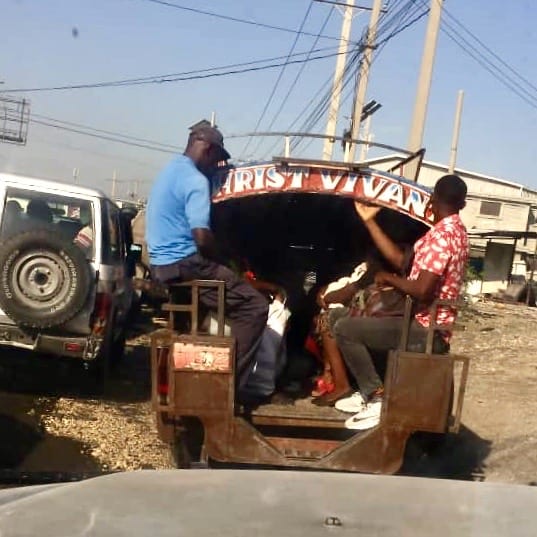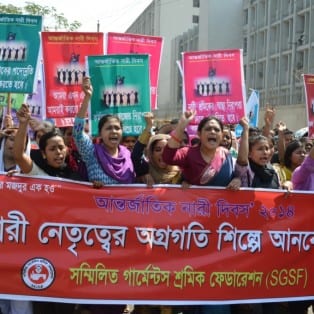Just as the magnitude of the COVID-19 pandemic highlights the massive global economic and social inequality around the world, with workers in the informal economy and supply chains, and migrant workers—many of whom are women—especially marginalized, so, too, does it...
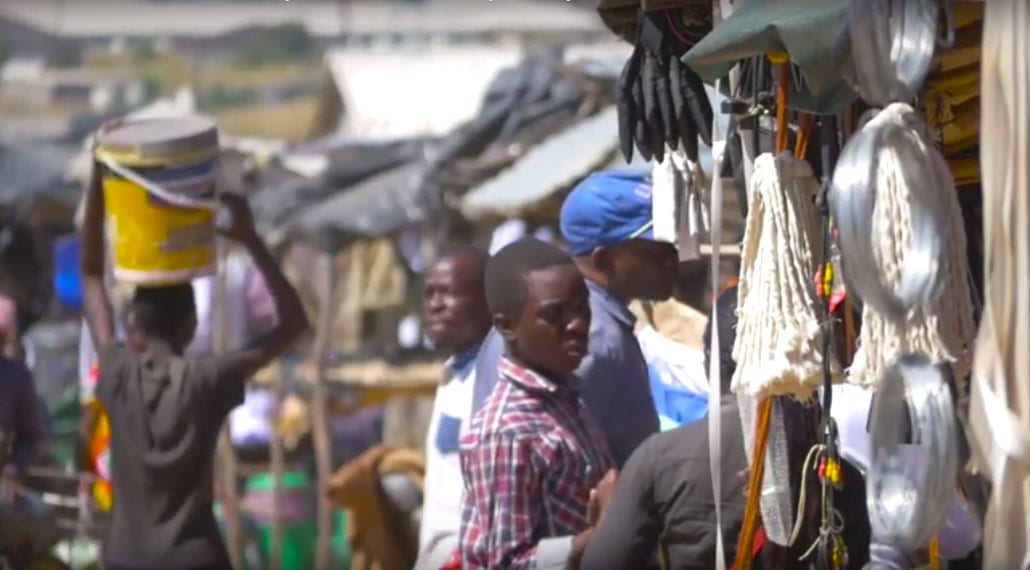
The Solidarity Center assists workers in the informal economy, such as market vendors in Zimbabwe, come together to assert their rights and raise living standards. Credit: ZCIEA
Some 2 billion people work in the informal sector as domestic workers, taxi drivers, and street vendors, many of them women workers. Informal economy work now comprises the majority of jobs in many countries and is increasing worldwide. Although informal economy workers can create up to half of a country’s gross national product, most have no access to health care, sick leave or support when they lose their jobs, and they have little power to advocate for living wages and safe and secure work.
The Solidarity Center is part of a broad-based movement in dozens of countries to help workers in the informal economy come together to assert their rights and raise living standards. For instance, three affiliates of the Central Organization of Trade Unions-Kenya (COTU-K), a Solidarity Center partner, signed agreements with informal worker associations to unionize the workers, enabling them to access to the country’s legal protections for formal-sector employees.
Find out more about informal workers gaining power by joining together in unions and worker associations in this Solidarity Center-supported publication, Informal Workers and Collective Action: A Global Perspective.
Learn More about Our Partners!
The Solidarity Center, as part of the global labor movement, is proud to closely work with trade unions, civil society organizations, academic institutions, progressive private foundations, labor-friendly businesses, governments and dozens of generous individuals to...
COVID-19: Bangladesh Garment Workers Stand Up for Rights
The COVID-19 crisis is especially devastating for the 50 million workers who make clothes, shoes and textiles in factories around the world. With declining sales, corporate retailers are canceling orders and factories are laying off workers, most without pay. Those...
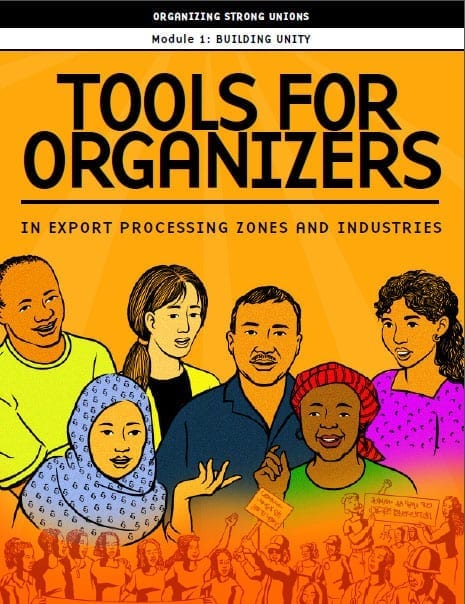
Tools for Organizers in Export Processing Zones and Industries
Building worker power is fundamental to achieving worker rights, and organizing strong unions is fundamental to achieving worker power--and this hands-on guide gives trainers the tools they need to build unity and ultimately, change the rules of the game. Download...

The Struggle for Worker Rights in Colombia (2006)
Colombian trade unionists face daily threats of violence and assassination, attempts by employers, paramilitaries, guerrillas and the state to stop dissent, silence workers and destroy the only mechanism that gives workers some control over their economic lives: their...
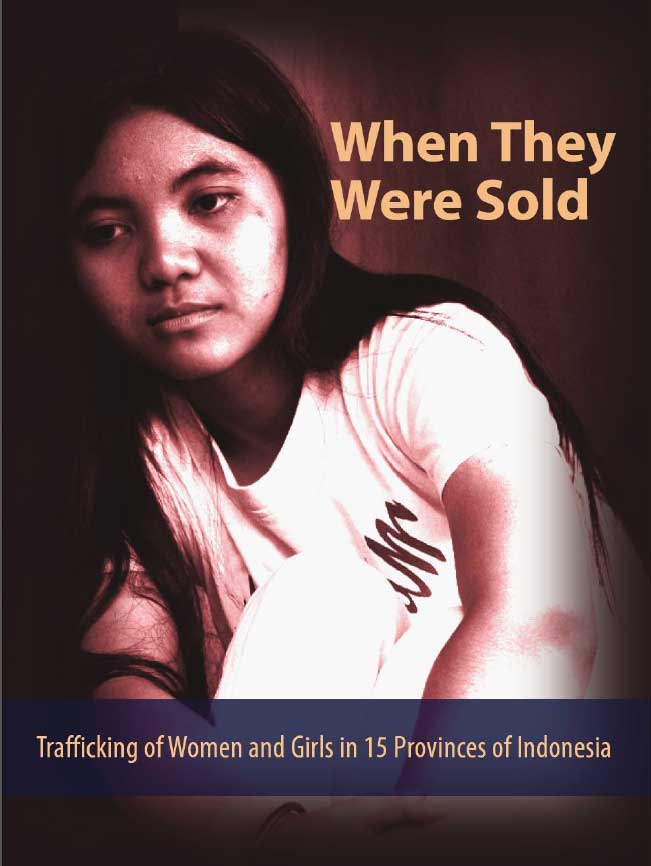
When They Were Sold: Trafficking of Women and Girls in 15 Provinces of Indonesia (2006)
The report looks at Indonesia's migrant worker system, which is under intense scrutiny over allegations of contributing to debt bondage and trafficking of migrant workers. It also examines efforts of government and non-government organizations to combat trafficking,...
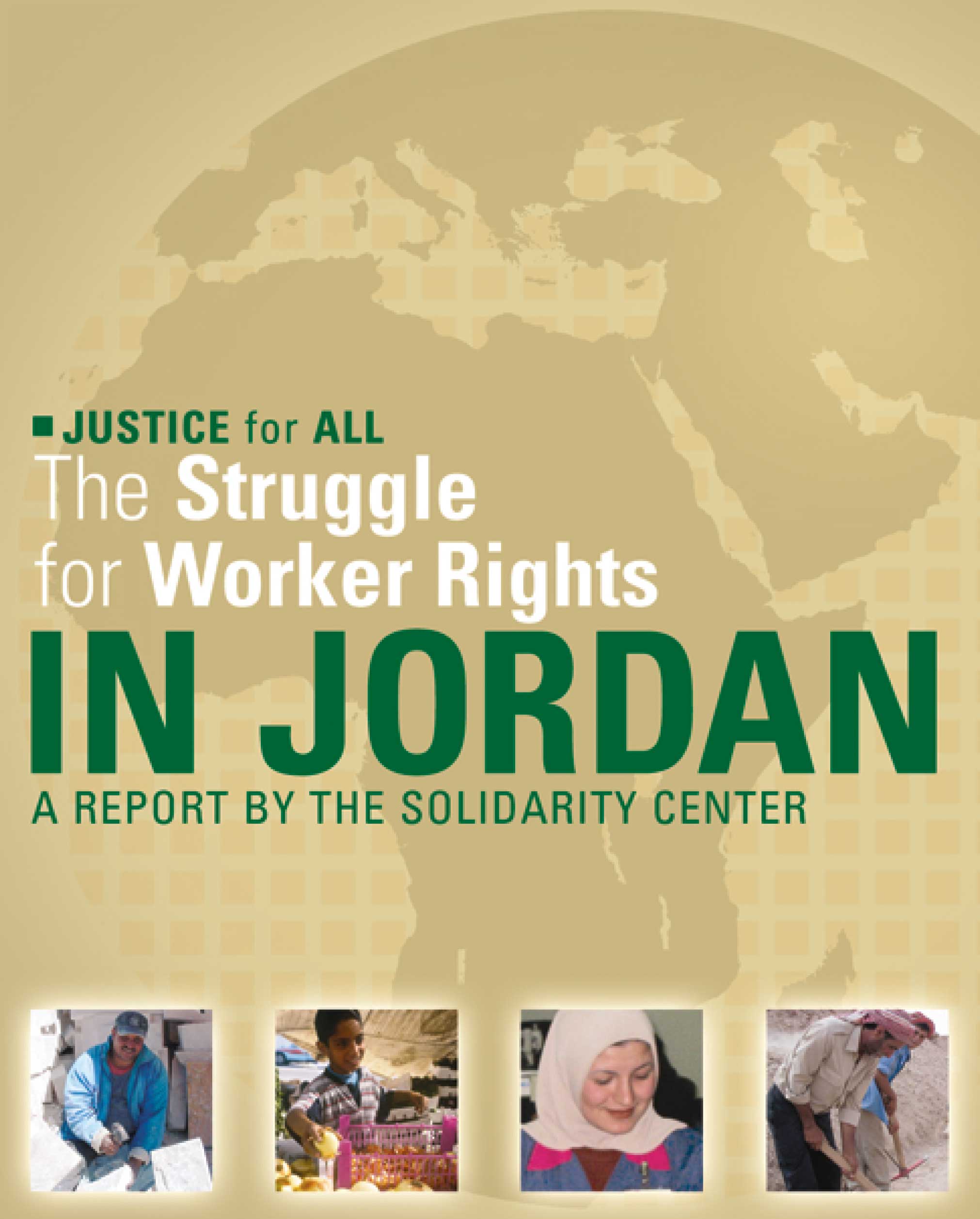
The Struggle for Worker Rights in Jordan (2005)
"The Struggle for Worker Rights in Jordan" lays out steps the Jordanian government, Jordanian unions, multinational enterprises and actors on the international stage can take to ensure respect for and enforcement of worker rights in Jordan. By following this path,...
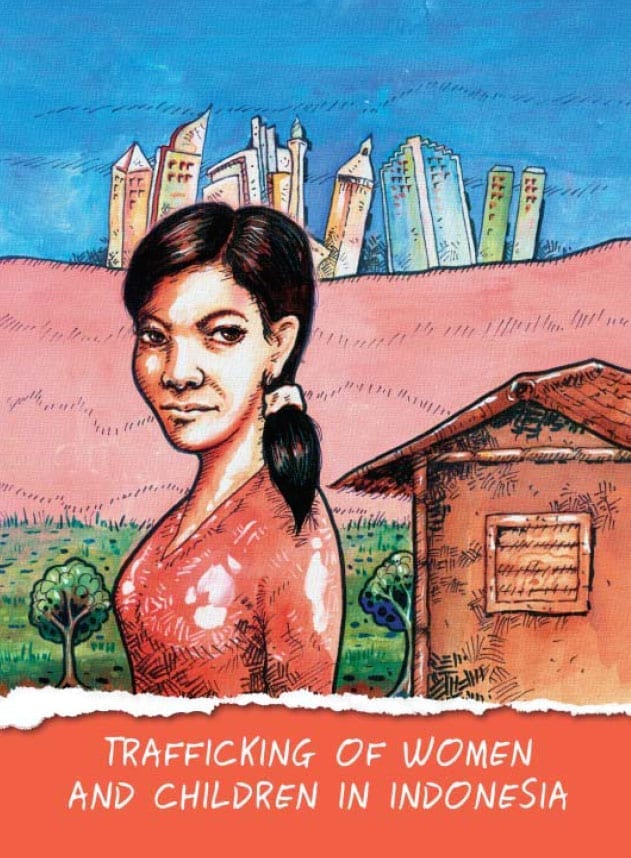
Trafficking of Women and Children in Indonesia (2003)
"Trafficking of Women and Children in Indonesia" examines the many forms of human labor trafficking, their causes and the demographics fueling the rise of women and children in forced and exploitative labor. Download here.
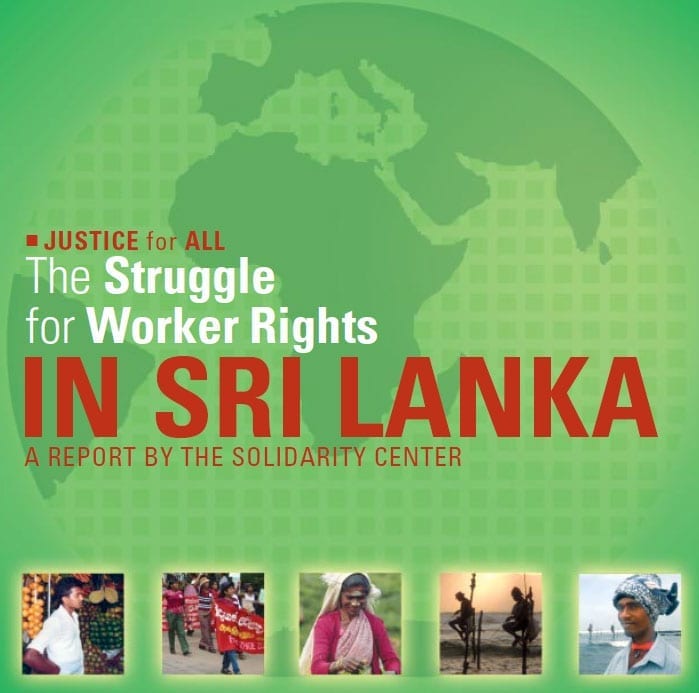
The Struggle for Worker Rights in Sri Lanka
In this second report of Solidarity Center's Justice for All series, worker rights researcher Lance Compa assesses how two decades of civil war affected democracy, economy and social justice in Sri Lanka. Compa compares Sri Lanka’s labor law and practice...

